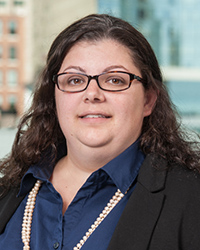Venture capital funding continues to grow - by Liz Berthelette
If you read last month’s Felder Report, or any major news outlet for that matter, you know the fear of a bursting tech bubble is gaining momentum. Startup hubs like Silicon Valley, Seattle, Denver and Austin are beginning to face overvalued startups, reduced funding, a non-existent IPO market and increasing layoffs. We are still seeing some positive trends in the Boston metro, with more than $1 billion in venture funding in the first quarter of 2016, which is well above the fourth quarter-low of $724 million.
Why is venture capital funding holding steady in the Boston market, despite concern among the broader marketplace, and what does this mean for commercial real estate? The local life science industry has been leading the funding charge, accounting for more than 60% of total dollar volume in the first quarter. Boston’s positive outlook for growth in life sciences and health care is helping to minimize risk and bolster demand for lab space.
Paired with this growth, the state has renewed its commitment to the life sciences ecosystem by putting $63.6 million in a 2017 capital plan for the Massachusetts Life Sciences Center. Governor Charlie Baker’s funding announcement this past month communicates his allegiance to the life sciences initiative started by his predecessor, Deval Patrick. The allocated money will help fund training, research programs, and incubators for early-stage biotech and medical technology companies.
Lastly, Series A funding increased from last year’s volume, which bodes well for demand growth from local startups as their commercial real estate needs tend to expand following early funding events. Though trends in venture funding should be monitored closely in the coming quarters, we are encouraged by Boston’s expanding tech and life science sectors.
Liz Berthelette is director of research at NAI Hunneman, Boston.
Newmark negotiates sale of 10 Liberty Sq. and 12 Post Office Sq.

Four tips for a smooth 1031 Exchange - by Bill Lopriore

Five ways to ruin a Section 1031 Like-Kind Exchange - by Bill Lopriore

Make PR pop by highlighting unique angles - by Stanley Hurwitz










